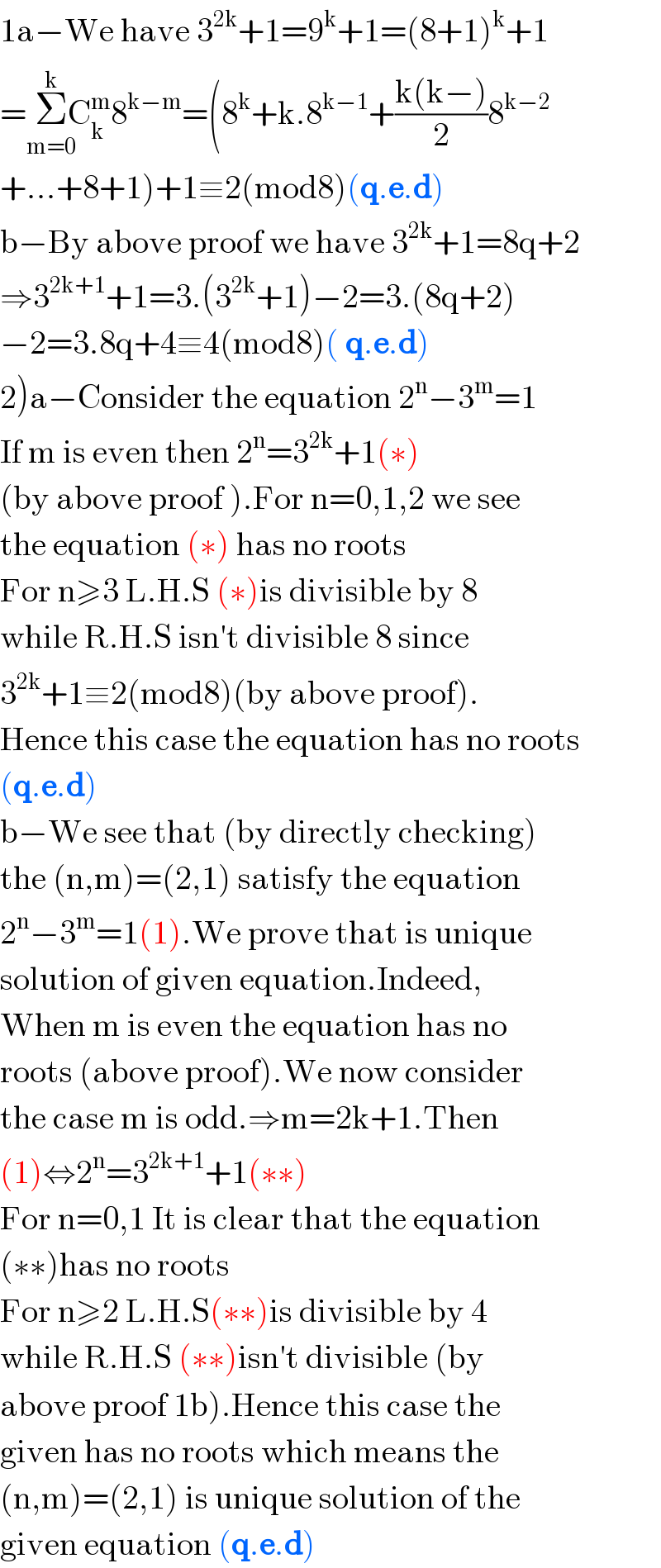
Question and Answers Forum
Question Number 119580 by mathocean1 last updated on 25/Oct/20
![Given k ∈ N. 1) justify these relations: 3^(2k) +1≡2[8] and 3^(2k+1) +1≡4[8]. 2) Given (E): 2^n −3^m =1. n and m are unknowed. • Show that if m is even , (E) does not have solution. ■ Deduct from the first question 1) that the couple (2;1) is the only solution of (E).](Q119580.png)
Answered by mindispower last updated on 25/Oct/20
![3^(2k+1) +1≡4[8] ?](Q119587.png)
Commented by mathocean1 last updated on 25/Oct/20

Answered by mindispower last updated on 25/Oct/20
![3^(2k) +1=9^k +1≡1^k +1=2[8] 3^(2k+1) +1=9^k .3+1≡3.(1)^k +1≡4]8] (E)⇔2^n −(3^m +1)=0 m=2k ⇒2^n =(1+3^(2k) )≡2[8] withe 1⇒n=1 but n=1 (E)⇒2−9^k =1⇒k=0 (E) has solution (n,m)=(1,0) m=2k+1 ⇒2^n =(1+3^(2k+1) )≡4(8)...withe Quation 1 ⇒n=2, 4−3.9^k =1⇒k=0 m=2.0+1=1,n=2 solution are(n,m)∈{(1,0);(2,1)}](Q119598.png)
Answered by 1549442205PVT last updated on 25/Oct/20

